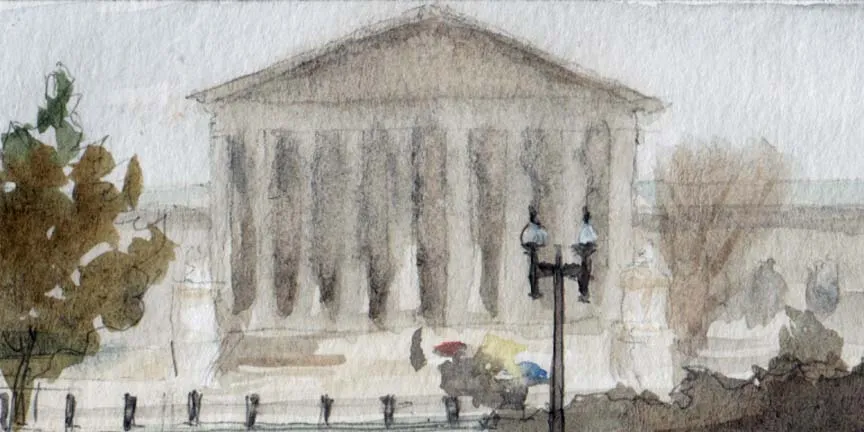Monday round-up

For The Washington Post, Emma Brown reports that Christine Blasey Ford, the author of the confidential letter containing an allegation of sexual assault against her by Supreme Court nominee Judge Brett Kavanaugh when they were both in high school, has come forward with her first public comments about the allegation. Also for The Post, Sean Sullivan and others report that “Sens. Jeff Flake (Ariz.) and Bob Corker (Tenn.), Republicans who are retiring at the end of this term, joined Democrats in urging a delay in the vote until the [Senate Judiciary] Committee hears from Ford.” At Politico, Burgess Everett reports that “Flake is one of 11 Republicans on the narrowly divided panel and without his support, the committee cannot advance his nomination.” For NPR, Nina Totenberg reports that “[t]he public accusation against Brett Kavanaugh is sure to be the center of gravity in Washington politics this week.” Commentary comes from Kent Scheidegger at Crime & Consequences, Garrett Epps at The Atlantic, Kenneth Jost at Jost on Justice, David Boyle at Boyle’s Laws, Kathleen Parker in an op-ed for The Washington Post, and the editorial board of The Wall Street Journal , which writes that “the accusation is too distant, too disputed and too late in the day. It also doesn’t fit everything else we know about Mr. Kavanaugh’s behavior across his 53 years.” Additional commentary on the nomination comes from David Gans in an op-ed for the Bangor Daily News.
Briefly:
- Amy Howe reports for this blog, in a post first published at Howe on the Court, that Chief Justice John Roberts on Sunday granted a request from Crossroads Grassroots Policy Strategy to put a hold on a federal district court order “invalidat[ing] a Federal Election Commission regulation governing when political nonprofit groups, sometimes referred to as ‘dark money’ groups, must disclose their donors.”
- At The Times Picayune, Heather Nolan reports that a Louisiana “landowner’s fight with the federal government over whether his private property should become a new breeding ground for the endangered dusky gopher frog- which last was seen in the parish more than 50 years ago – could be nearing the end of a six-year legal battle” when the Supreme Court decides Weyerhaeuser Company v. U.S. Fish and Wildlife Service next term.
- At Capital Appellate Advocacy, Lawrence Ebner maintains that “[t]he real Supreme Court Bar is not limited to the small number of very talented attorneys who repeatedly handle oral arguments before the Court,” but “is composed of hundreds of attorneys from around the United States who author and file Supreme Court petitions and briefs.”
- In the latest episode of First Mondays (podcast), Dan Epps and Ian Samuel are “joined by Kent Greenfield and Adam Winkler, who both have new books about corporate personhood, as well as our bankruptcy expert, Danielle D’Onfro.”
We rely on our readers to send us links for our round-up. If you have or know of a recent (published in the last two or three days) article, post, podcast, or op-ed relating to the Supreme Court that you’d like us to consider for inclusion in the round-up, please send it to roundup [at] scotusblog.com. Thank you!
Posted in Round-up
